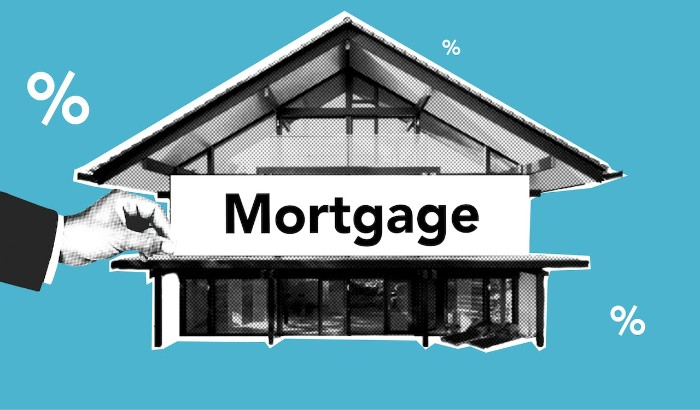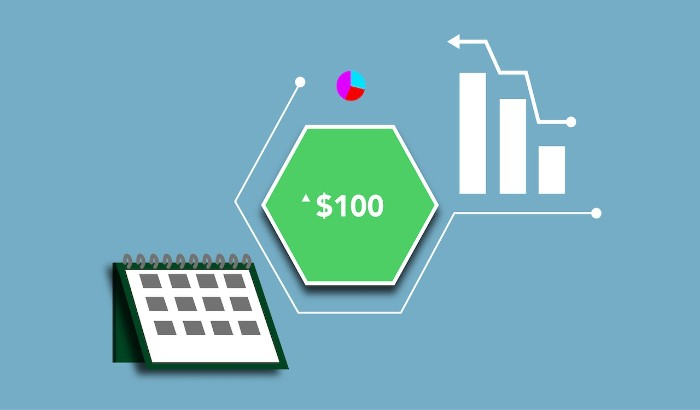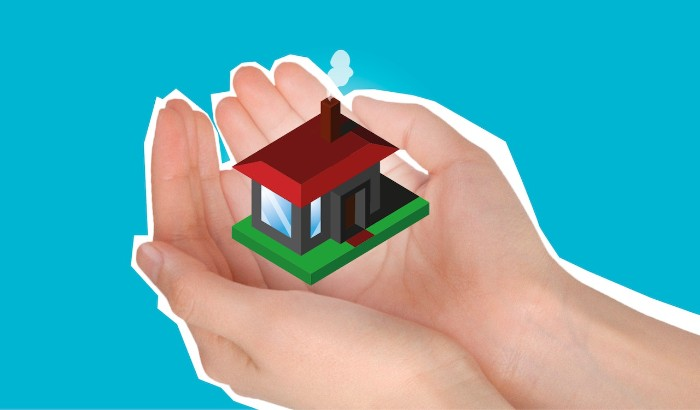
Choosing the Right Option for You
Buying a home is a major milestone for many families and individuals, but the process of securing a mortgage loan can be daunting, especially if you’re a first-time homebuyer. With so many different types of mortgage loans available, it can be difficult to know which one is right for your needs and budget. That’s why we’ve created this guide to mortgage loans in Denver, Colorado, and the surrounding area – to help you understand your options and make an informed decision when it comes to financing your home purchase.
In this article, we’ll explore the different types of mortgage loans available to homebuyers in the Denver area, including conventional loans, FHA loans, VA loans, jumbo mortgages, and USDA Guaranteed Loans. We’ll discuss the benefits and drawbacks of each loan type, as well as eligibility requirements and other important factors to consider when choosing a mortgage.
We’ll also provide an overview of mortgage insurance, important industry agencies, and other factors that can impact your overall affordability and financial stability. By the end of this guide, you’ll have a better understanding of the mortgage loan options available to you and be better equipped to make an informed decision when it comes to financing your home purchase in Denver or anywhere in Colorado.
Types of Loans for Homes in the Greater Denver Area
Whether you’re looking for a conventional loan or a government-backed loan, there are several options to choose from. Let’s take a closer look at the different types of loans available to homebuyers in Denver and the surrounding areas.
Conventional Mortgages
As a potential homebuyer in the Denver area, understanding your options when it comes to home loans is crucial. One popular option is a conventional mortgage. In this section, we’ll dive deeper into what a conventional mortgage is, how it differs from other types of mortgages, and the benefits and drawbacks of this loan option.

What is a Conventional Mortgage?
A conventional mortgage is a type of loan that is not backed by a government agency such as the Federal Housing Administration (FHA) or the Department of Veterans Affairs (VA). Instead, it is backed by a private lender or financial institution, such as a bank or credit union. Because conventional loans are not insured or guaranteed by the government, they may have stricter credit and income requirements.
How Does a Conventional Mortgage Differ from Other Types of Mortgages?
One key difference between a conventional mortgage and other types of mortgages is that conventional loans typically require a higher credit score and a larger down payment. For example, FHA loans and VA loans often have more lenient credit and income requirements and may only require a small down payment or even no down payment at all.
Another key difference is that conventional loans sometimes have higher interest rates than government-backed mortgages. This is because lenders take on more risk with conventional loans, as they are not insured or guaranteed by the government.
Benefits of a Conventional Mortgage
One of the biggest benefits of a conventional mortgage is that it allows you to borrow a larger amount of money than government-backed loans. This can be especially useful if you are looking to purchase a more expensive home in the Denver area. Also, if you have a high credit score and a sizable down payment, you may be able to secure a lower interest rate on a conventional loan than you would with a government-backed loan.
Another benefit of conventional mortgages is that they often have more flexibility in terms of loan terms and repayment options. For example, you may be able to choose between a fixed-rate or adjustable-rate mortgage, and you may have more options when it comes to the length of your loan term.
Drawbacks of a Conventional Mortgage
One potential drawback of a conventional mortgage is that it may be harder to qualify for than a government-backed mortgage. Because conventional loans are not insured or guaranteed by the government, lenders may require a higher credit score, a larger down payment, and a lower debt-to-income ratio.
Another potential drawback is that conventional loans often require private mortgage insurance (PMI) if you put down less than 20% of the home’s value as a down payment. PMI can add to your monthly mortgage payment and may make your overall loan more expensive.
Conventional Loans – Key Takeaways
Overall, conventional mortgages can be a good option for homebuyers in the Denver area who are looking to purchase a home and have a fairly good credit score and the funds to make a down payment. However, it is important to note that this loan option may be harder to qualify for if your credit score or down payment is not up to par. Additionally, you may have to pay for private mortgage insurance if you put down less than 20% of the home’s value, which can add to your monthly payments.
Before committing to a conventional loan, it is important to compare your options and weigh the benefits and drawbacks carefully. By speaking with one of our knowledgeable mortgage professionals, you can get a better understanding of the different loan types and which one is best for your unique situation.
Click here to view more information on our Denver area Conventional Loan options.
FHA Loans
If you’re a first-time homebuyer or have a lower credit score, you may find that qualifying for a conventional mortgage is difficult. In these cases, an FHA loan may be a good option to consider. In this section, we’ll explore what an FHA loan is, how it differs from a conventional mortgage, and the benefits and drawbacks of this loan option.

What is an FHA Loan?
An FHA loan is a type of government-backed loan that is insured by the Federal Housing Administration. This means that if you default on your loan, the FHA will pay your lender the remaining balance. Because the loan is insured, lenders may be more willing to approve borrowers with lower credit scores and smaller down payments.
How Does an FHA Loan Differ from a Conventional Mortgage?
One of the biggest differences between an FHA loan and a conventional mortgage is the credit score requirement. While conventional mortgages typically require a minimum credit score of 620, FHA loans may be available to borrowers with credit scores as low as 500 (with a 10% down payment) or 580 (with a 3.5% down payment – *These are only estimates). Additionally, FHA loans require a smaller down payment than conventional mortgages, with a minimum down payment of 3.5%.
Another key difference is that FHA loans have more flexibility in terms of income requirements. While conventional loans typically require a debt-to-income ratio of 43% or lower, FHA loans may allow a debt-to-income ratio of up to 50%.
Benefits of an FHA Loan
One of the biggest benefits of an FHA loan is that it may be easier to qualify for than a conventional mortgage. If you have a lower credit score or a smaller down payment, an FHA loan may be a good option to consider. Additionally, FHA loans may offer lower interest rates than conventional mortgages, especially if you have a lower credit score.
Another benefit of FHA loans is that they allow more flexibility in terms of where your down payment comes from. With a conventional mortgage, your down payment must come from your own funds or a gift from a family member. With an FHA loan, you may be able to use funds from a down payment assistance program or a grant from a non-profit organization.
Drawbacks of an FHA Loan
One potential drawback of an FHA loan is that it requires mortgage insurance premiums (MIP). This is different from private mortgage insurance (PMI) which is required on conventional loans when the borrower puts down less than 20% of the home’s value. MIP is required on all FHA loans, and the amount you pay will depend on the size of your down payment and the length of your loan term. This can add to your monthly mortgage payment and may make your overall loan more expensive.
Additionally, FHA loans may have more strict property requirements than conventional mortgages. For example, the home must meet certain safety and livability standards, and there may be limitations on the types of properties that are eligible for FHA loans.
FHA Loans – Key Takeaways
If you are a first-time homebuyer or have a lower credit score, an FHA loan may be a good option to consider. At A Better Choice Mortgage, we can help you navigate the process of securing an FHA loan in the Denver area. With our knowledge of FHA loan requirements and expertise in the local market, we can help you find the right loan for your needs and budget.
Click here to view more information on our FHA Loan options for the Denver area.
VA Loans
If you are a current or former member of the United States military, a VA loan may be a good option to consider for your Denver-area home purchase. In this section, we’ll explore what a VA loan is, how it differs from other types of mortgages, and the benefits and drawbacks of this loan option.

What is a VA Loan?
A VA loan is a type of government-backed loan that is guaranteed by the Department of Veterans Affairs. VA loans are available to eligible veterans, active-duty service members, and their surviving spouses. Like FHA loans, VA loans are also insured, which means that lenders may be more willing to approve borrowers with lower credit scores and smaller down payments.
How Does a VA Loan Differ from Other Types of Mortgages?
One of the biggest differences between a VA loan and other types of mortgages is that VA loans do not require a down payment. This can be a significant benefit for eligible borrowers who may not have the funds for a large down payment. Additionally, VA loans do not require private mortgage insurance (PMI), which can add to the cost of a mortgage.
Another key difference is that VA loans may have more lenient credit and income requirements than conventional mortgages. While conventional loans typically require a minimum credit score of 620, VA loans may be available to borrowers with lower credit scores. Additionally, VA loans do not have a maximum debt-to-income ratio, although lenders may still require borrowers to have a certain level of income to qualify.
Benefits of a VA Loan
One of the biggest benefits of a VA loan is that it allows eligible borrowers to purchase a home with no down payment. This can be a significant advantage for veterans and active-duty service members who may not have significant savings. Additionally, VA loans may offer lower interest rates than conventional mortgages, which can save borrowers money over the life of the loan.
Another benefit of VA loans is that they may offer more flexible repayment options. For example, borrowers may be able to choose between a fixed-rate or adjustable-rate mortgage, and they may have more options when it comes to the length of the loan term.
Drawbacks of a VA Loan
One potential drawback of a VA loan is that it may be more difficult to qualify for than other types of mortgages. Borrowers must meet certain eligibility requirements, such as having served a minimum number of days on active duty or being the surviving spouse of a service member who died in the line of duty. Additionally, VA loans may have more strict property requirements than conventional mortgages.
Another potential drawback is that VA loans require a funding fee, which is a one-time fee that is based on the size of the loan and the borrower’s military service history. The funding fee can be rolled into the loan amount, but it can still add to the overall cost of the loan.
VA Loans – Key Takeaways
If you are a current or former member of the military or the surviving spouse of a service member, a VA loan may be a good option to consider for your Denver-area home purchase. A Better Choice Mortgage can help you navigate the process of securing a VA loan and can provide guidance on eligibility requirements and other aspects of the loan. With our expertise in the Colorado market and knowledge of VA loan requirements, we can help you find the right loan for your needs and budget.
Click here to view more information on our Colorado VA Loan options.
Jumbo Mortgages
If you are looking to purchase a high-value home in the Denver area, a jumbo mortgage may be a good option to consider. In this section, we’ll explore what a jumbo mortgage is, how it differs from other types of mortgages, and the benefits and drawbacks of this loan option.

What is a Jumbo Mortgage?
A jumbo mortgage is a type of home loan that is used to finance a property that exceeds the conforming loan limits set by Fannie Mae and Freddie Mac. In most areas of the country, the conforming loan limit for a single-family home is $726,200 in 2023. Any loan amount that exceeds this limit is considered a jumbo mortgage.
How Does a Jumbo Mortgage Differ from Other Types of Mortgages?
One of the biggest differences between a jumbo mortgage and other types of mortgages is that jumbo loans have higher credit score and income requirements. Because jumbo loans represent a higher risk to lenders, they often require borrowers to have a higher credit score and a lower debt-to-income ratio than conventional mortgages.
Additionally, jumbo mortgages often have higher interest rates than other types of mortgages. This is because they represent a higher risk to lenders, who are taking on more money to finance the loan.
Benefits of a Jumbo Mortgage
One of the biggest benefits of a jumbo mortgage is that it allows you to purchase a high-value home that you may not be able to afford with a conventional mortgage. Additionally, jumbo loans may offer more flexible repayment options, such as a choice between a fixed-rate or adjustable-rate mortgage.
Another benefit of jumbo mortgages is that they may allow you to borrow more money than other types of mortgages. If you have a high credit score and a significant down payment, you may be able to secure a larger loan amount than you would with a conventional mortgage.
Drawbacks of a Jumbo Mortgage
One potential drawback of a jumbo mortgage is that it may be more difficult to qualify for than other types of mortgages. As we’ve stated, because jumbo loans represent a higher risk to lenders, they often require a higher credit score, a larger down payment, and a lower debt-to-income ratio.
Another potential drawback is that jumbo mortgages often have higher interest rates than other types of mortgages. This can make your overall loan more expensive and increase your monthly mortgage payment.
Jumbo Mortgage – Key Takeaways
If you are looking to purchase a high-value home in the Denver area, a jumbo mortgage may be a good option to consider. A Better Choice Mortgage can help you navigate the process of securing a jumbo loan and can provide guidance on eligibility requirements and other aspects of the loan.
Click here to view more information on our Colorado Jumbo Loan options.
USDA Guaranteed Loans
If you are looking to purchase a home in a rural area of Colorado, a USDA Guaranteed Loan may be a good option to consider. In this section, we’ll explore what a USDA Guaranteed Loan is, how it differs from other types of mortgages, and the benefits and drawbacks of this loan option.

What is a USDA Guaranteed Loan?
A USDA Guaranteed Loan is a type of government-backed loan that is designed to help low- and moderate-income borrowers purchase homes in rural areas. The loan is guaranteed by the United States Department of Agriculture (USDA), which means that if you default on your loan, the USDA will pay your lender the remaining balance.
How Does a USDA Guaranteed Loan Differ from Other Types of Mortgages?
One of the biggest differences between a USDA Guaranteed Loan and other types of mortgages is that it is only available to borrowers who are purchasing a home in a designated rural area. Additionally, USDA Loans have income limits that vary by location and family size.
Another key difference is that USDA Guaranteed Loans do not require a down payment. This can be a significant benefit for eligible borrowers who may not have the funds for a large down payment. When it comes to mortgage insurance, a USDA loan does require what’s called a guarantee fee. This functions similarly to mortgage insurance and is an upfront fee of 1% of the total loan, plus an annual fee of 0.35% of the loan amount.
Benefits of a USDA Guaranteed Loan
One of the biggest benefits of a USDA Guaranteed Loan is that it allows eligible borrowers to purchase a home with no down payment. This can be a significant advantage for low- and moderate-income borrowers who may not have significant savings. Additionally, USDA Guaranteed Loans may offer lower interest rates than conventional mortgages, which can save borrowers money over the life of the loan.
Another benefit of USDA Guaranteed Loans is that they allow more flexibility in terms of where your down payment comes from. With a conventional mortgage, your down payment must come from your own funds or a gift from a family member. With a USDA Guaranteed Loan, you may be able to use funds from a down payment assistance program or a grant from a non-profit organization.
Drawbacks of a USDA Guaranteed Loan
One potential drawback of a USDA Guaranteed Loan is that it may be more difficult to qualify for than other types of mortgages. Borrowers must meet certain eligibility requirements, such as having a low to moderate income and purchasing a home in a designated rural area.
Another potential drawback is that USDA Guaranteed Loans require a funding fee, which is a one-time fee that is based on the size of the loan and is designed to offset the cost of the program. The funding fee can be rolled into the loan amount, but it can still add to the overall cost of the loan.
USDA Guaranteed Loans – Key Takeaways
If you are looking to purchase a home in a rural part of Colorado and meet the eligibility requirements, a USDA Guaranteed Loan may be a good option to consider. A Better Choice Mortgage can help you navigate the process of securing a USDA Guaranteed Loan and can provide guidance on eligibility requirements and other aspects of the loan.
Click here to view more information on our USDA Loan options for Colorado.
Fixed vs. Adjustable Mortgages
When it comes to choosing a mortgage in Colorado, one of the biggest decisions you’ll need to make is whether to choose a fixed-rate or adjustable-rate mortgage. In this section, we’ll explore the differences between fixed-rate and adjustable-rate mortgages, the benefits and drawbacks of each, and factors to consider when choosing the right type of mortgage for your needs.

Fixed-Rate Mortgages
A fixed-rate mortgage is a type of home loan where the interest rate remains the same for the entire term of the loan, typically 15 or 30 years. This means that your monthly mortgage payment will remain the same throughout the life of the loan, providing stability and predictability for your budget.
Benefits of a Fixed-Rate Mortgage
One of the biggest benefits of fixed-rate loans is that they provide stability and predictability for your budget. Because your interest rate and monthly mortgage payment remain the same, you’ll always know what to expect, making it easier to plan for other expenses.
Another benefit of a fixed-rate mortgage is that it may offer peace of mind. With a fixed-interest rate mortgage, you don’t need to worry about your interest rate rising, which can be especially valuable when interest rates are rising.
Drawbacks of a Fixed-Rate Mortgage
One potential drawback of a fixed-rate mortgage is that it may have a higher interest rate than an adjustable-rate mortgage, especially in a low-interest-rate environment. This can make your overall loan more expensive, which can impact your monthly mortgage payment and overall affordability.
Additionally, a fixed-rate mortgage may not be as flexible as an adjustable-rate mortgage. For example, if interest rates drop significantly, you may not be able to take advantage of the lower rates without refinancing your loan, which can be costly and time-consuming.
Adjustable-Rate Mortgages
An adjustable-rate mortgage (ARM) is a type of home loan where the interest rate can fluctuate over time, typically every year after an initial fixed-rate period. The interest rate is usually tied to a specific index, such as the prime rate, and may adjust up or down based on market conditions.
Benefits of an Adjustable-Rate Mortgage
One of the biggest benefits of an adjustable-rate mortgage is that it may offer a lower interest rate than a fixed-rate mortgage, especially in a low interest rate environment. This can make your overall loan more affordable, which can impact your monthly mortgage payment and overall affordability.
Another benefit of an adjustable-rate mortgage is that it may offer more flexibility than a fixed-rate mortgage. For example, if interest rates drop significantly, your interest rate and monthly mortgage payment may also decrease, which can help you save money.
Drawbacks of an Adjustable-Rate Mortgage
One potential drawback of an adjustable-rate mortgage is that your interest rate and monthly mortgage payment can rise over time. This can make your overall loan more expensive and impact your monthly budget, which can be especially challenging if you experience a change in income or financial circumstances.
Additionally, an adjustable-rate mortgage may not be as predictable as a fixed-rate mortgage. Because your interest rate can fluctuate over time, it can be difficult to plan for other expenses and make long-term financial decisions.
Factors to Consider When Choosing Between a Fixed and Adjustable-Rate Mortgage
When choosing between a fixed-rate and adjustable-rate mortgage, there are several factors to consider. These include your current financial situation, your long-term financial goals, and your overall risk tolerance. A Better Choice Mortgage can help you navigate the process of choosing the right type of mortgage for your needs in Colorado and can provide guidance on the pros and cons of each option.
Click here to view more information on Fixed vs. Adjustable-Rate Mortgage options in Colorado.
Other Factors to Consider
In addition to choosing the right type of mortgage, there are several other things to consider when purchasing a home. These include your credit score, debt-to-income ratio, and overall financial stability. These factors can impact your ability to qualify for a mortgage and can impact the overall affordability of your loan.
Additionally, it’s important to keep in mind that depending on the type of loan you choose and the size of your down payment, you may need mortgage insurance. This can impact the affordability of the loan.

Mortgage Insurance
Mortgage insurance is a type of insurance that protects lenders in case a borrower defaults on their loan. If you are unable to make your monthly mortgage payments, mortgage insurance can help cover the remaining balance on your loan. There are several types of mortgage insurance, including private mortgage insurance (PMI), which is required for conventional loans with a down payment of less than 20%, and mortgage insurance premiums (MIP), which are required for FHA loans.
Fannie Mae and Freddie Mac
When purchasing a home, it’s important to understand the role of institutions such as Fannie Mae and Freddie Mac. These organizations are government-sponsored enterprises (GSEs) that purchase mortgages from lenders and package them into mortgage-backed securities (MBS). This provides additional liquidity to the mortgage market and allows lenders to offer more competitive rates and loans to borrowers.
These two government-sponsored entities also offer mortgage insurance through their HomeReady and Home Possible programs.
The Federal Housing Finance Agency
Additionally, the Federal Housing Finance Agency (FHFA) is a government agency that regulates and oversees government-sponsored enterprises (GSEs), including Fannie Mae and Freddie Mac. The FHFA is responsible for ensuring that these organizations operate in a safe and sound manner and that they support the stability and liquidity of the secondary mortgage market.
A Better Choice Mortgage can help you navigate all of the different factors and provide guidance on the best strategies for securing a mortgage and purchasing a home in the Denver area. With our expertise in the local market and knowledge of mortgage requirements and regulations, we can help you find the right loan for your needs and budget.
By carefully weighing the advantages and disadvantages of each type of mortgage, you can make an informed decision that meets your financial needs and goals. With the help of a trusted mortgage specialist, you can find the right loan to meet your specific needs and budget. It’s important to find a loan that you can comfortably afford over the long term, so you don’t have to worry about monthly payments or interest rate fluctuations.
Types of Mortgage Loans: Conclusion
In conclusion, there are several types of mortgage loans available to families and individuals looking to purchase a home in the Denver, Colorado area. Whether you are a first-time homebuyer, a current or former member of the military, or are looking to purchase a high-value home, there is a mortgage loan option that can meet your needs.
A Better Choice Mortgage is a leading provider of mortgage loans in the Denver region, with a team of experts who can guide you through the process of securing the right loan for your needs and budget. From conventional loans to FHA loans, VA loans, jumbo mortgages, and USDA Guaranteed Loans, we have the knowledge and experience to help you navigate the complexities of the mortgage lending process.
Whether you are looking to purchase your first home or your forever home, A Better Choice Mortgage can help you find the right loan for your needs. Contact us today to learn more about our mortgage loan options and how we can help you achieve your dream of homeownership in the Denver, Colorado area.
